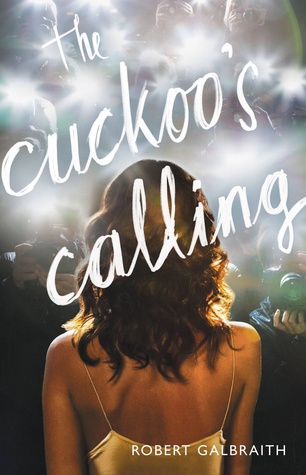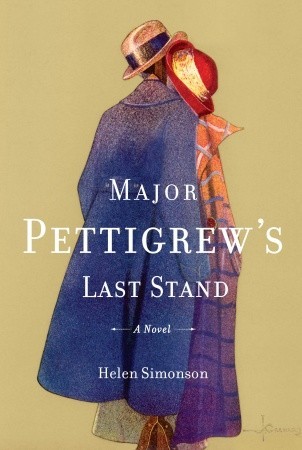This is only the second Bill Bryon book I've read, the first being A Walk in the Woods, which I read three years ago. Bill Bryson lived in England for 20 years after marrying a British woman, and before moving to the United States, he took a 6-week trip traveling around Britain and chronicling his trip. I read this for my book group, and we had a great evening discussing the book, especially as we have a British woman in our book group. It's a love story to Britain--even though it was published in the mid-1990s, so much still applies. Here are some memorable thoughts from the book:
- The charming way the British react to tea and a plate of biscuits: "ooh lovely!"
- Bryson writes about how unfortunate it is that communism was left to the Russians instead of the British, who "clearly would have managed it so much better." He talks about their ability to go without, how they are great at pulling together in the face of adversity for a perceived common good...how they "queue patiently for indefinite periods and accept with rare fortitude the imposition of rationing, bland diets, and sudden inconvenient shortages." He goes on about how they are "comfortable with faceless bureaucracies, tolerant of dictatorships (as Margaret Thatcher proved), will wait uncomplainingly for years for an operation or delivery of a household appliance." They have a "natural gift for making excellent, muttered jokes about authority without ever actually challenging it...they derive universal satisfaction from the sight of the rich and powerful brought low...most of those above the age of 28 already dress like East Germans. Britain would have done it properly, taken it in stride, with good heart, and without excessive cheating."
- He says that the British are easy to please: "They have so little idea of their own virtues, and nowhere is this more true than with their own happiness. Easy to please...like their pleasures small...so many of their treats are cautiously flavorful...they are the only people in the world who think of jam and currants as thrilling constituents of a pudding or cake...offer them something genuinely tempting (a slice of gateau or a choice of chocolates), and they will nearly always hesitate and begin to worry that it's unwarranted and excessive, as if any pleasure beyond a very modest throshold is vaguely unseemly. 'Oh, I shouldn't really...'"
- In the late 1980s the European Union issued a directive about standards of ocean-borne sewage on beaches, and nearly every British seaside town failed to come anywhere near the minimum compliance levels. So instead of cleaning them up, the Thatcher government decided that Britain would not have any "beaches." Nowadays, they are labeled beaches, but they still have a serious sewage problem. I'll remember this next time we go to a British seaside!
- One of my favorite anecdotes was when he visited a pub in Glasgow and couldn't understand a thing the bartender was saying...such as "D'ye hae a hoo and a poo?" "D'ye nae hae in May? If ye dinna dock ma donny." "Doon in Troon they croon in June, wi' a spoon."
I actually enjoyed the anecdotes and thoughts about Britain and the British more than the traveling bits. Bryson gets a bit grumpy at times, but it's clear that he really loves Great Britain. He ends the book with this:
“Suddenly, in the space of a moment, I realized what it was that I loved about Britain - which is to say, all of it. Every last bit of it, good and bad - Marmite, village fetes, country lanes, people saying 'mustn't grumble' and 'I'm terribly sorry but,' people apologizing to me when I conk them with a nameless elbow, milk in bottles, beans on toast, haymaking in June, stinging nettles, seaside piers, Ordnance Survey maps, crumpets, hot-water bottles as a necessity, drizzly Sundays - every bit of it.
What a wondrous place this was - crazy as fuck, of course, but adorable to the tiniest degree. What other country, after all, could possibly have come up with place names like Tooting Bec and Farleigh Wallop, or a game like cricket that goes on for three days and never seems to start? Who else would think it not the least odd to make their judges wear little mops on their heads, compel the Speaker of the House of Commons to sit on something called the Woolsack, or take pride in a military hero whose dying wish was to be kissed by a fellow named Hardy? ('Please Hardy, full on the lips, with just a bit of tongue.') What other nation in the world could possibly have given us William Shakespeare, pork pies, Christopher Wren, Windsor Great Park, the Open University, Gardners' Question Time and the chocolate digestive biscuit? None, of course.
How easily we lose sight of all this. What an enigma Britain will seem to historians when they look back on the second half of the twentieth century. Here is a country that fought and won a noble war, dismantled a mighty empire in a generally benign and enlightened way, created a far-seeing welfare state - in short, did nearly everything right - and then spent the rest of the century looking on itself as a chronic failure. The fact is that this is still the best place in the world for most things - to post a letter, go for a walk, watch television, buy a book, venture out for a drink, go to a museum, use the bank, get lost, seek help, or stand on a hillside and take in a view.
All of this came to me in the space of a lingering moment. I've said it before and I'll say it again. I like it here. I like it more than I can tell you.”





